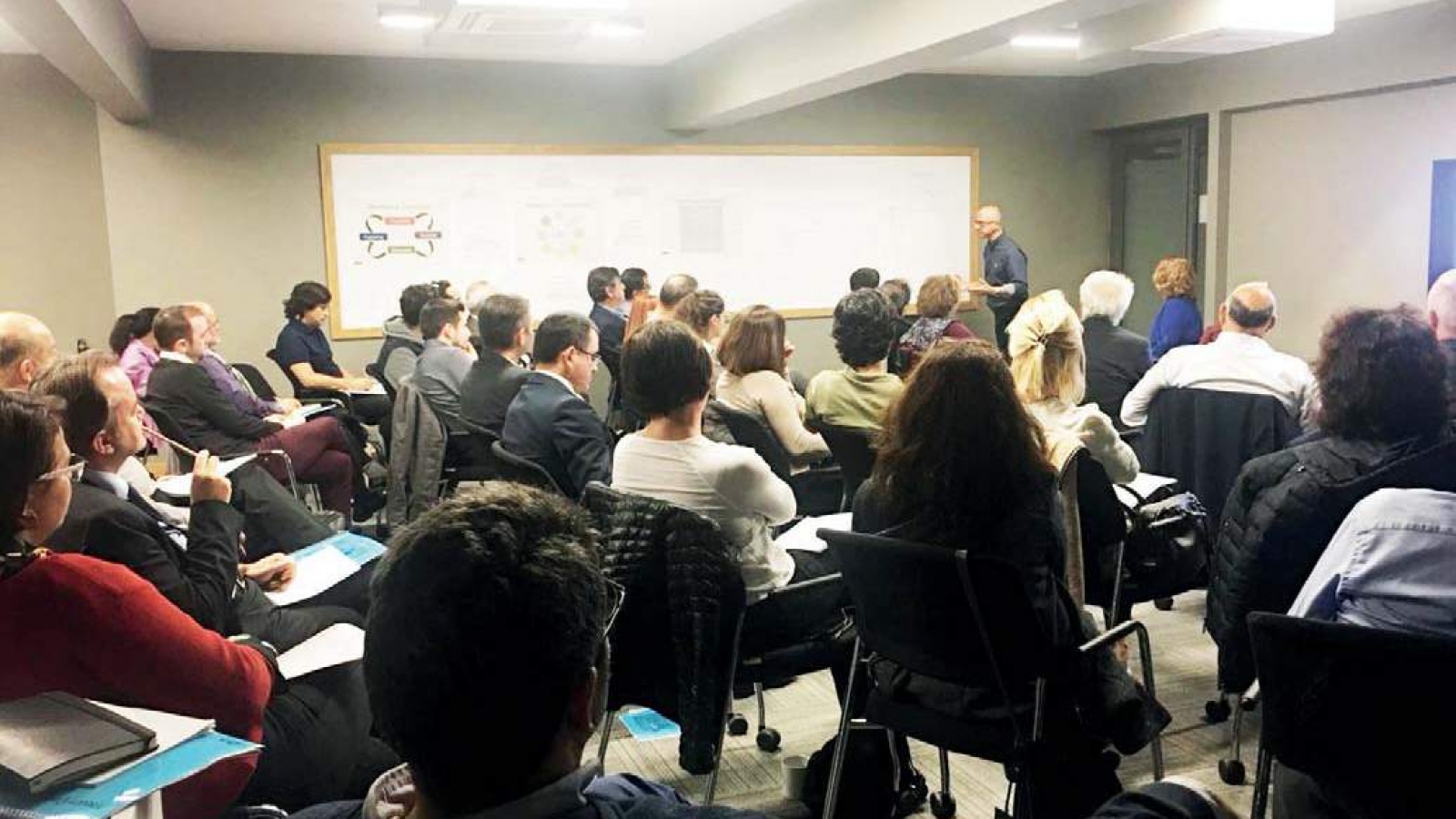Preparations for the new term of the Mentoring Program, which was implemented by the ITU Alumni Association to support ITU students’ preparation for both learning and business life and determining their career roadmaps, have been completed. Before the new term, we talked to Sami Bugay, Founder and Managing Director of KA Consulting, who held workshops with mentors and mentees with the aim of increasing optimization, effectiveness and performance in the process, about the details of the program and mentoring
This year, you brought a new breath to the Mentoring Program. What did you do, can you talk about innovations?
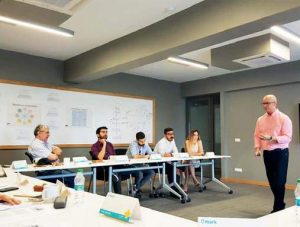
ITU Mentoring Program started with a very good infrastructure. During the process, there were those who joined the program and those who left. A mentoring training was provided at the very beginning of the program, but this has not been renewed over the years. At this point, there was no standard infrastructure. Mentoring is that people who have experience in a field voluntarily transfer their experiences, knowledge and experiences to support the success of the other and guide them in the process. This year, we expanded it a little more in the ITU Alumni Association. When mentoring someone in an area, you also need an alignment about the direction they want to go. Why does the person want that space? What is it that draws him there? How can he achieve the change in behavior here? What does he need to transform in his perspective or perception in order to be successful in this field? When we start to deepen with these questions, coaching competencies also come into play. Within this program, we had the chance to deepen in these areas as well.
Of course there is no end to it. We gave mentoring trainings, we can’t say this is over. That’s why next year, in the continuation of this program, with the friends who have taken this training, to polish their knowledge a little more, to deepen their knowledge and for the newcomers to be compatible with this program.
It would be meaningful to open a training from scratch again to ensure that they are.
How did you cooperate with the ITU Alumni Association for the Mentoring Program?
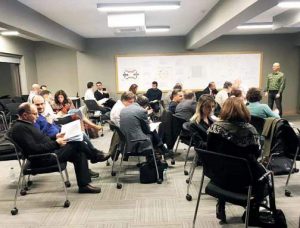
I was the president of the International Coaching Federation in Turkey between 2016-2018. The International Coach Federation (ICF) is the largest organization for coaching in the world, with more than 33,000 members in more than 140 countries and setting the standards on coaching for 30 years. Erdem Türkkal from the ITU board of directors called me one day and said that we will start such a program, can you come and share your ideas as an ITU student. Then we talked to Veli Tan Kirtiş, President of ITU Alumni Association. We, as KA Education Consultancy, stated that we would support them. We worked on what to put in the program and how we could best convey it using time, and we started in April. I gave the entire program at ITU.
What is the goal of the program?
The goal of this program is to make the mentoring service provided within ITU a homogeneous standard structure, to ensure that everyone who mentors goes through this process, and to give people tools that they can use other than just supervising and transferring the subject. On the mentee side, why do they want to receive mentoring?
to think. To align this process with both the person who will give voluntarily and the person who will receive it in an expectation perspective and to enable people to give their own experiences and wisdom together with a methodology. I may be very authoritative in what I do, but if I don’t know how to pass this information on to you, how to align my resources with your expectations, then my benefit to you is minimal, no matter how much I want it. In this process, we aimed to increase optimization, efficiency and performance on behalf of both service providers and service recipients.
Where did the workshops take place? How many mentors have you trained so far?
We held it in the big meeting room of the ITU Alumni Association. Each program lasted three and a half hours. We worked with nearly 200 mentors. We have done 14 classes so far.
What do you do in the workshop?
We are working towards the application. Mentors can provide meaningful support to mentees in line with their goals. If we wonder what the other person values, what is important to them, what their worldview is, from which perspective they look at the world, and gather a little more information from these places, we can provide better support regarding the way they want to go. We clearly reveal the level of mutual knowledge and what the expectations will be. This is a very important thing.
Can anyone be a mentor? What is important in mentoring?
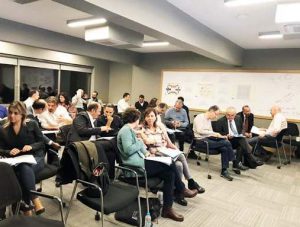
There is one of my favorite sayings: If you have an intention, there is a way. I think there is a time to give and take in mentoring. It’s a project on volunteering we’re doing here. We are talking about an area where you start to give back what you have accumulated in mentoring. Where you intend to give back what you have taken, where you begin to share your knowledge and wisdom. If you intend to do this, you can do it, but you need to learn how to do this job without breaking the will of the other person. I am not you. Your abilities, competencies, the system you are in, the environment, the people you come in contact with, your upbringing are the things that affect your existence today. You need mental stretching as a mentor. You can do this most easily from the moment you start to make your coaching competencies or support competencies that person-centered.
In other words, it is possible to reach a meaningful conclusion when you start to look at what is in the current dynamics of your mentee and how they can enter this sector.
What are the expectations or problems of the mentees?
One of the most important topics is that the incoming mentee does not have a meaningful and future-oriented framework in his mind about why he wants to receive mentorship. When I say where do I want to go, how can I get the maximum benefit at this time, what need should the mentoring program meet, in fact, the event will come to a very different stage. We mostly see an area of development here.
Are there important points in mentor and mentee matching?
Of course, it is valuable that someone from the department they are studying gives them perspective and that someone who has done this job for a long time is mentoring. However, the most important thing is that it is mentored on its own; because even though we all come out of different sources at the same time, we come out with a certain perspective. It is also very valuable to hear about the business world and the future from a different perspective.
Since 2005, you have collected all your knowledge in the book of Holistic Team Coaching. Can you talk a little bit about this book?
Holistic Team Coaching is a book written for professionals who coach for their colleagues, managers who lead teams, and those who exist in a team as a team member.
It is the first team book written by a Turk and published in Turkey, half of it is theory and half is practical. The English version will be available on Amazon soon.
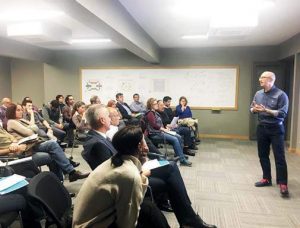
ABOUT SAMİ BUGAY
Born in Istanbul to a worker family, Sami Bugay completed the International Management program at IU Faculty of Business after graduating from ITU Mathematical Engineering. Bugay, who started his first coaching training in 200A and then completed the programs of six different coaching schools, has more than 6,000 hours of coaching experience. As the Founder and Managing Director of KA Consulting, Bugay’s work areas include individuals, corporate leader development, new managers preparing for the top level in organizations, entrepreneurial managers, corporate and personal change. Bugay served as the President of the International Coach Federation Turkey in the 2016-2018 period. He wrote the book Holistic Team t Coaching.

